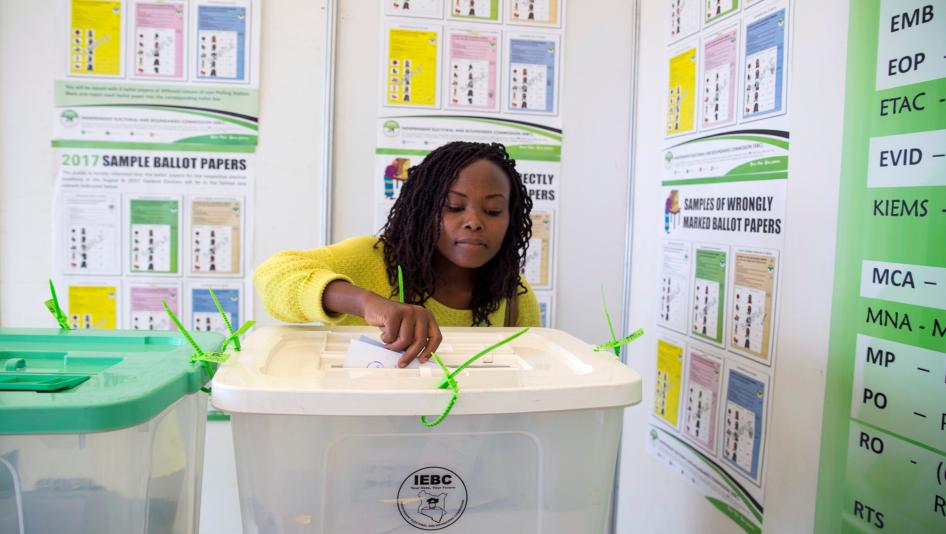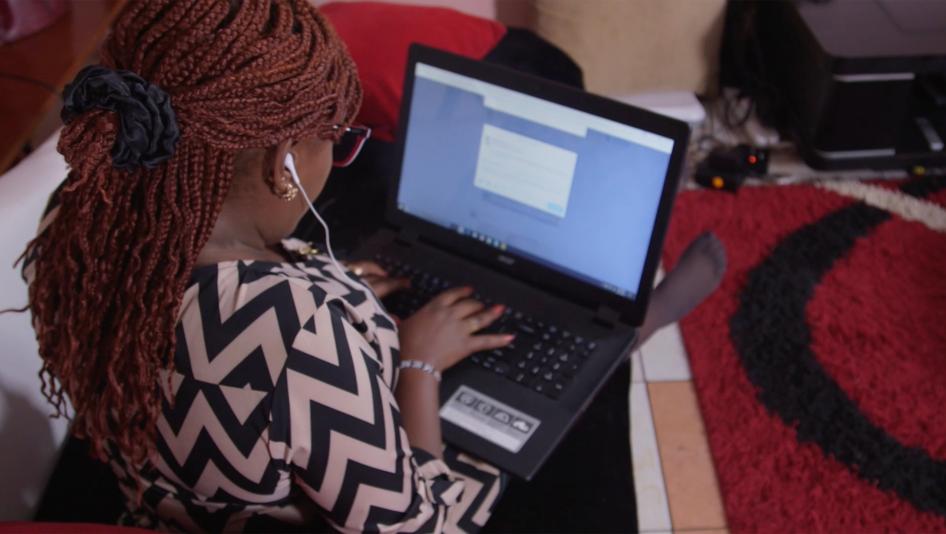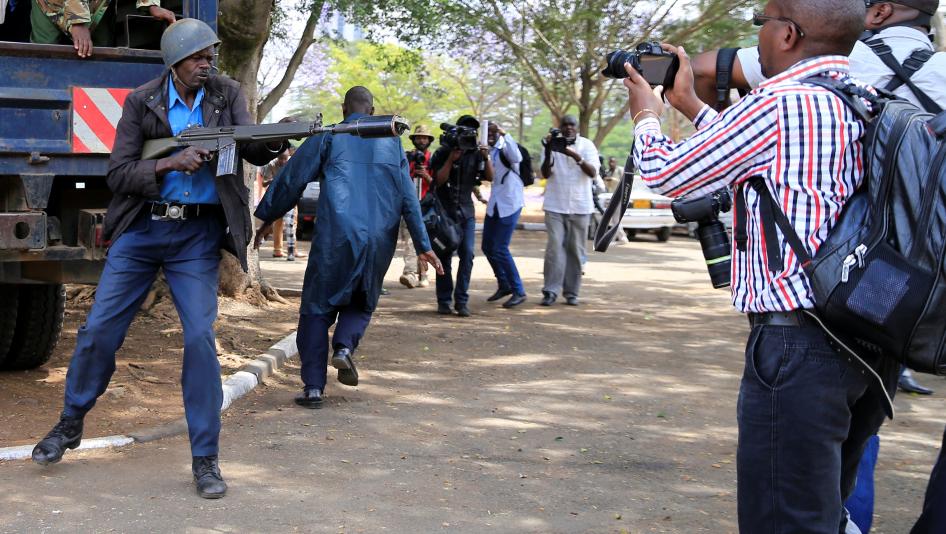Communities leaving Eldoret Ahead of August
A man walks through ruins of an area of Chepilat in the Rift Valley Province, February 2008. The burning of homes by Kalenjin men, forced residents of both the Kisii and the Kikuyu ethnic groups to flee.
Eldoret county was among the areas worst hit by the violence that followed disputed presidential election results in 2007. A 66-year-old woman from the Kikuyu ethnic group, and mother of six who is now a widow, recounts her experience of the violence, edited for clarity.
I am very fearful in this election. In 2007, there was no sign there would be violence. Today, I think there are signs.
In July 2011, my husband died of heart attack. I think this was brought about by the loss of our home, five-acre land and livestock during the violence in 2007.
At around 8 p.m. on December 29, 2007, our neighbor came to warn us that violence was rapidly approaching. There was a lot of noise. We quickly dressed up and left for safety. As I was driving, I came across a lot of people from my community running. They told me that the youth were torching houses.
Other young men from the Kalenjin ethnic group had erected road blocks where they stopped and ransacked cars. They were mainly looking for the Kikuyu. The youth stopped my car. The youth hit and badly injured my son and husband by a sling.
I took my son and husband to Moi Referral Hospital in Eldoret. At the hospital, nurses would look at victim’s names and, depending on the ethnicity, would say: “Your president has rigged elections and says the job continues. Let it continue.” And they would refuse to treat them.
Along the way, I found many young men who had smeared faces with dark soil. I think they were armed but I was panicking and could not see clearly. They were inside a church. I think they were dropped by a lorry. They had burned down houses and food stores along the way. These are the young men who burned people inside Kiamba church.
Although they did not burn my house, only ferrying away my livestock, they were vicious at my neighbor’s place: they burned down everything, killed all livestock and ferried away dairy cows. The young men seemed to be looking for specific homes.
Although I remained in Eldoret with my eldest son after my husband relocated with other children, I have never gone back to our Eldoret home due to fear.
People are leaving Eldoret ahead of this election now. A friend who has rental houses told me that 20 of his tenants have left.
Here, the threats target mainly Kikuyu due to historical differences with the Kalenjin over land and also opposition supporting communities such as the Luo and Luhya.
Last April when candidates were receiving nomination certificates, one senior county leader here issued threats to non-Kalenjin communities. He said non-Kalenjin will to go back to their rural areas.
Other political leaders in the county have been issuing similar threats. That is why non-Kalenjin communities are leaving this area. No one has been arrested for issuing threats.





















